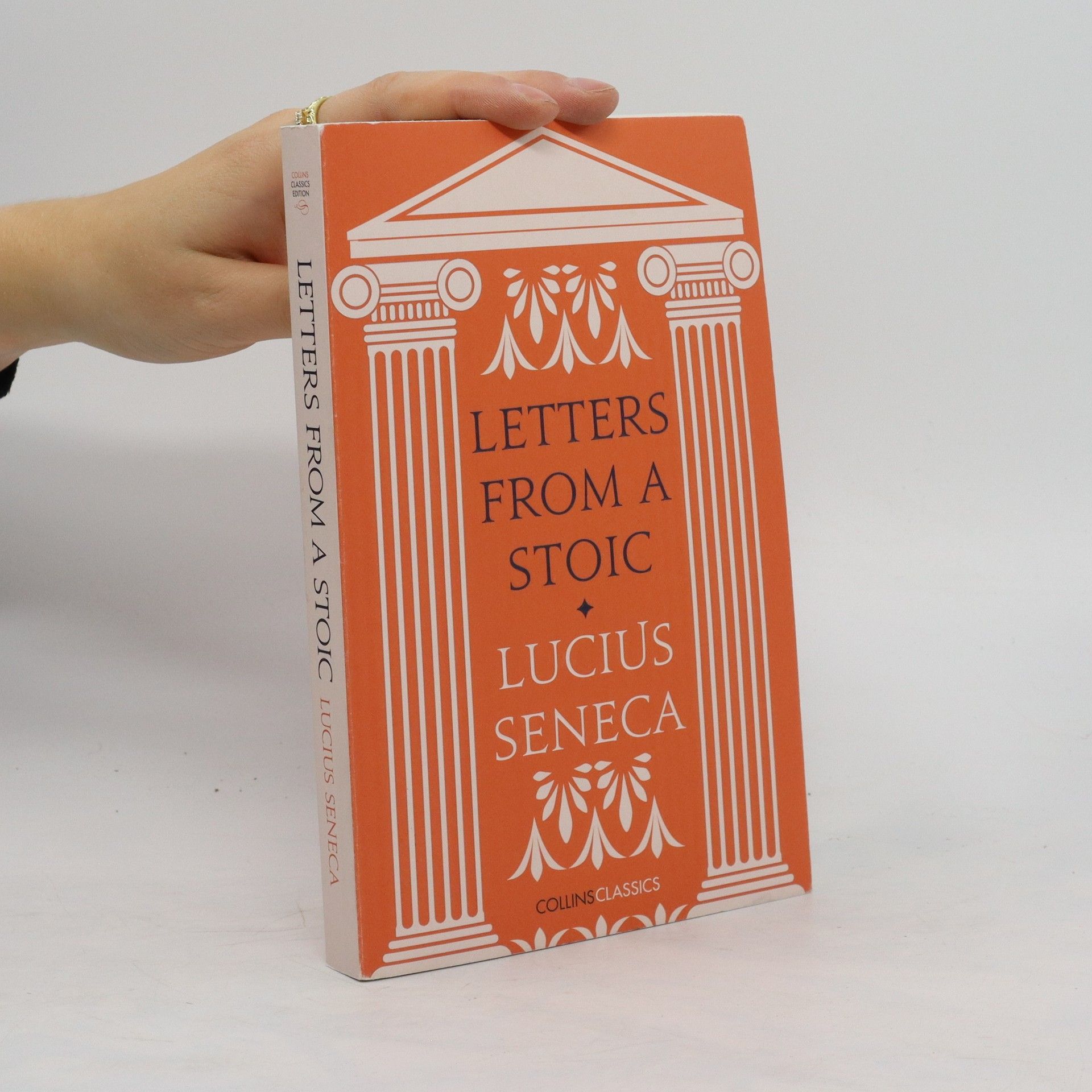In 124 epistles Seneca (c. 4-65 CE) writes to Lucilius, occasionally about technical problems of philosophy, but more often in a relaxed style about moral and ethical questions, relating them to personal experiences. He thus presents a Stoic philosopher's thoughts about the good life in a contemporary context.
Lucius A. Seneca Livres
Lucius Annaeus Seneca fut un philosophe stoïcien et un dramaturge romain de l'Âge d'Argent de la littérature latine. Son œuvre explore des thèmes philosophiques profonds, mettant l'accent sur l'éthique et la moralité, avec un style marqué par sa perspicacité et sa maîtrise rhétorique. Seneca s'est penché dans ses écrits sur la connaissance de soi, la régulation des émotions et la quête de la tranquillité intérieure dans un monde tumultueux. Ses réflexions philosophiques et ses pièces dramatiques continuent d'inspirer les lecteurs par leur sagesse intemporelle et leur puissance littéraire.






Lucius Annaeus Seneca (4 BCE - 65 CE) was a Roman Stoic philosopher, dramatist, statesman, and adviser to the emperor Nero, all during the Silver Age of Latin literature. This title is a fresh and compelling series of new English-language translations of his works in eight accessible volumes.
In Moral Essays, Seneca (c. 4 65 CE) expresses his Stoic philosophy on providence, steadfastness, anger, forgiveness, consolation, the happy life, leisure, tranquility, the brevity of life, and gift-giving.
Seneca the Elder (?55 BCE 40 CE) collected ten books devoted to controversiae (some only preserved in excerpt) and at least one (surviving) of suasoriae. Extracts from famous declaimers of Seneca s illuminate influences on the styles of most pagan (and many Christian) writers of the Empire.
Make each of your days meaningful using Seneca's immortal guidance In On the Shortness of Life: The Stoic Classic, Tom Butler-Bowdon introduces the work of Lucius Annaeus Seneca, an ancient Roman philosopher who wrote on the fleeting nature of existence and the need to live in a way that is worthy of the short time we have on this planet. In the book, you'll learn how to go beyond busyness and shallow pursuits and fill your days with purpose. The happy life is the virtuous life. Seneca explains how to: Spend time in reflection and truly honour yourself and your value. Fulfil your duties to family and society yet remain mentally independent. Separate what matters from what merely pleases the ego. Perfect for anyone seeking meaning and purpose in their daily lives, On the Shortness of Life is an extraordinary reminder of the transient nature of life that shows you how to make each moment count.
Seneca (c. 4 65 CE) devotes most of Naturales Quaestiones to celestial phenomena. In Book 1 he discusses fires in the atmosphere; in 2, lightning and thunder; in 3, bodies of water. Seneca s method is to survey the theories of major authorities on the subject at hand, so his work is a guide to Greek and Roman thinking about the heavens.
Tragedies
- 672pages
- 24 heures de lecture
Seneca is a figure of great importance in both Roman politics and literature: an advisor to the Emperor Nero, a prolific moral philosopher, and the author of verse tragedies that strongly influenced Shakespeare and other Renaissance dramatists.
Seneca the Elder (?55 BCE 40 CE) collected ten books devoted to controversiae (some only preserved in excerpt) and at least one (surviving) of suasoriae. Extracts from famous declaimers of Seneca s illuminate influences on the styles of most pagan (and many Christian) writers of the Empire.
Letters from a Stoic
- 256pages
- 9 heures de lecture
HarperCollins is proud to present its incredible range of best-loved, essential classics.
